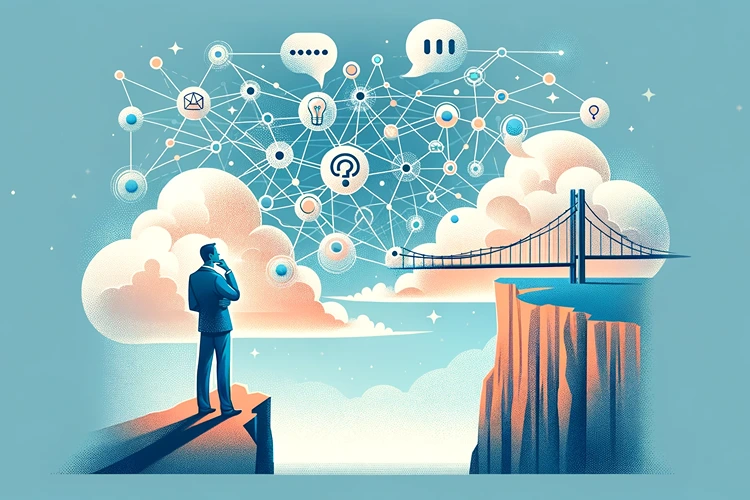As the job market continues to evolve, the skills and attributes that employers seek in new graduates have expanded. It’s no longer enough to possess a strong academic record. Today, a combination of soft skills, technical know-how, and a proactive attitude towards continuous learning form the trifecta of an ideal candidate. This article delves into the key skills that can significantly enhance a graduate’s employability, offering insights into how to cultivate these skills and why they matter.
Communication Skills

Effective communication is A Core Competency Among Skills Employers Seek in Graduates. Employers value graduates who can articulate their ideas clearly, listen actively, and tailor their message to their audience. This skill is crucial for teamwork, client interactions, and effective leadership. Developing strong communication skills involves practice in various settings, from writing reports and presentations to engaging in group discussions and negotiations.
- Written Communication: The ability to convey ideas through writing is essential in almost every field. Whether drafting emails, reports, or project proposals, clarity, and conciseness are key.
- Verbal Communication: This encompasses both one-on-one and group communication settings. It’s not just about speaking clearly but also about engaging your audience and listening.
- Non-Verbal Communication: Body language, eye contact, and tone of voice all play a crucial role in effective communication. Being aware of these can enhance interpersonal interactions.
Critical Thinking and Problem-Solving
In a complex, rapidly changing world, employers prize the ability to think critically and solve problems creatively. This skill set involves analyzing situations, identifying problems, and developing effective solutions. Graduates can demonstrate this by engaging in case studies, participating in problem-solving workshops, and undertaking projects that require innovative thinking.
- Analyzing Information: Critical thinking begins with understanding the information at hand. This could mean evaluating data, assessing a situation from multiple perspectives, or researching background information.
- Identifying Problems: The ability to recognize issues before they escalate is invaluable. This involves noticing inconsistencies, potential improvements, or gaps in knowledge.
- Developing Solutions: This is where creativity comes in. Developing practical, effective solutions requires thinking outside the box and being willing to take calculated risks.
Teamwork and Collaboration: Working Well With Others

Today’s work environment is highly collaborative, highlighting teamwork as a pivotal component among the skills employers seek in graduates. The ability to function effectively within a team, embracing diverse viewpoints for collective success, is paramount. Employers value graduates who not only contribute to team dynamics but also engage in activities that foster these capabilities. Through participation in group projects, involvement in team sports or clubs, and mastering conflict resolution techniques, graduates can refine this essential skill, aligning with the competencies sought after in the modern workplace.
- Understanding Team Dynamics: Recognizing the strengths and weaknesses of team members and learning how to complement each other is crucial for effective teamwork.
- Conflict Resolution: Disagreements are inevitable in any team setting. The ability to navigate conflicts constructively is a valuable skill.
- Leadership Within Teams: Even if you’re not the team leader, showing leadership by motivating others, taking initiative, and setting a positive example is important.
Adaptability and Flexibility: Thriving in Change
The only constant in today’s workplace is change. Employers value graduates who can adapt to new situations and pivot when necessary. This might mean learning new technologies, adjusting to a changing work environment, or taking on different responsibilities as needed.
- Learning New Skills: The willingness to continuously learn and apply new skills is a hallmark of adaptability.
- Handling Uncertainty: Being comfortable with uncertainty and able to operate effectively under changing conditions is crucial.
- Flexibility: This involves being open to new ideas, working methods, and changes in direction.
Leadership: More Than Just Leading
Leadership is not confined to those in management positions. Employers seek graduates who can demonstrate leadership potential through their actions and decision-making. This includes taking initiative, inspiring others, and demonstrating ethical judgment and integrity.
- Initiative: Taking on responsibilities without being asked and looking for ways to contribute beyond your role shows leadership.
- Inspiring Others: Positive influence on peers, promoting teamwork, and motivating others are key leadership qualities.
- Ethical Judgment: Making decisions that reflect integrity and ethical considerations is crucial in building trust and credibility.
Digital Literacy: Navigating Today’s Tech Landscape
In an increasingly digital world, being proficient with technology is a must. This goes beyond basic computer skills to include understanding how digital tools can be used strategically in your field of work.
- Proficiency in Industry-Standard Software: Knowing the tools of your trade, whether it’s design software for creatives, analytics platforms for marketers, or coding languages for developers, is essential.
- Understanding Digital Trends: Keeping up with the latest technology trends and understanding their implications on your industry can set you apart.
- Cybersecurity Awareness: With cyber threats on the rise, understanding the basics of cybersecurity and how to protect digital assets is increasingly important.
Cultural Competency: Navigating a Diverse World
Globalization and demographic shifts have made the workplace more diverse than ever. Employers value graduates who can effectively interact, work, and collaborate with people from diverse cultures, backgrounds, and perspectives. This skill is vital for fostering an inclusive work environment and for companies that operate on a global scale.
- Understanding and Respecting Diversity: Being aware of and appreciating cultural differences and viewpoints is the foundation of cultural competency.
- Effective Cross-Cultural Communication: Adapting communication styles to respect cultural norms and expectations is crucial for effective collaboration.
- Global Mindset: An ability to view business and societal issues from a global perspective is highly valued, especially in multinational corporations.
Emotional Intelligence: The Key to Interpersonal Success
Emotional intelligence (EI) is the ability to understand and manage your own emotions and those of others. High EI leads to better team relationships, conflict resolution, and leadership abilities. It’s about more than just being aware of feelings; it’s using emotional insight to guide thinking and behavior in a positive way.
- Self-Awareness: Recognizing your own emotions and how they affect your thoughts and behavior is the first step in EI.
- Self-Regulation: Managing your emotions in healthy ways, taking initiative, and following through on commitments.
- Empathy: Understanding the emotions of others and treating them according to their emotional reactions.
Professionalism and Work Ethic
Professionalism and a strong work ethic stand out as fundamental among the skills employers seek in graduates. These non-negotiable qualities, encompassing reliability, responsibility, and ethical behavior, highlight a graduate’s commitment to excellence and readiness to exceed expectations. Demonstrating these traits effectively communicates to employers a dedication to quality work and an eagerness to contribute meaningfully to their organization’s success.
- Reliability and Dependability: Being someone others can count on to complete tasks efficiently and effectively.
- Integrity: Adhering to moral and ethical principles in both work and interactions.
- Commitment to Quality: Consistently striving to improve and deliver work of the highest standard.
Lifelong Learning and Continuous Improvement
The rapid pace of change in most industries means that the learning process never really stops. Employers seek individuals who are committed to personal and professional growth, who seek out opportunities for learning, and who can adapt their skills and knowledge as the job evolves.
- Seeking Feedback: Actively seeking and constructively responding to feedback is a key part of continuous improvement.
- Professional Development: Pursuing additional training, certifications, or education shows a commitment to enhancing your skill set.
- Adaptability: Being open to new ideas and experiences and willing to learn from them is crucial for growth.
Project Management
Project management skills enable a graduate to plan, execute, and oversee projects efficiently and effectively. This skill set is valuable in virtually every industry and includes time management, organization, and strategic planning.
- Planning and Organization: Setting project goals, creating timelines, and allocating resources efficiently.
- Risk Management: Identifying potential project risks and developing strategies to mitigate them.
- Leadership: Guiding a project team towards the successful completion of a project, motivating team members, and resolving conflicts.
Integrating Skills into Your Career Strategy
Knowing which skills are in demand is just the first step. Integrating these skills into your career strategy involves self-assessment, targeted learning, and strategic showcasing of your competencies:
- Self-Assessment: Reflect on your strengths and areas for improvement. Identify which of these key skills you already possess and which you need to develop.
- Targeted Learning: Once you’ve identified areas for growth, seek out resources and opportunities to develop these skills. This could include online courses, volunteer work, internships, or mentorship.
- Showcasing Your Skills: Use your resume, cover letter, and interviews to highlight how you’ve developed and applied these skills. Be prepared with specific examples that demonstrate your competencies.
FAQs
Wrapping Up
As we’ve explored, the transition from academia to the professional world requires more than just a degree. Employers are looking for well-rounded individuals who possess a blend of technical and soft skills. From communication and critical thinking to emotional intelligence and digital literacy, these competencies are essential for navigating today’s dynamic job market and succeeding in your career.
Remember, the development of these skills is a continuous journey. Engage in lifelong learning, seek feedback, and embrace opportunities to step out of your comfort zone. By doing so, you’ll not only enhance your employability but also pave the way for a rewarding and successful career.
Good luck as you embark on this exciting journey, armed with the knowledge and skills to thrive in the modern workplace.
